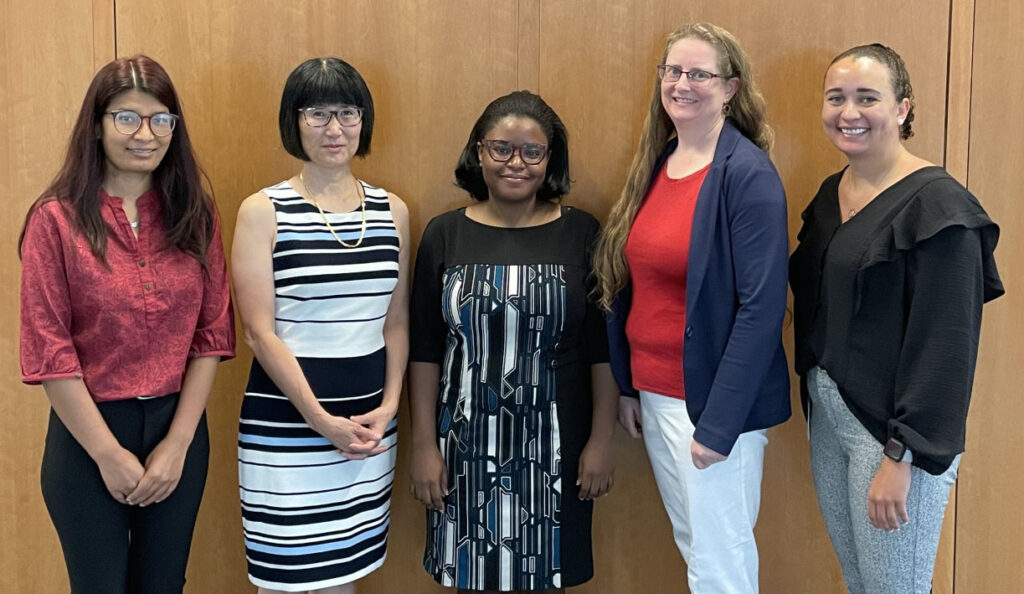The Fred & Pamela Buffett Cancer Center at UNMC has completed its first-ever assessment of cancer needs across Nebraska, drawing attention to cancer health disparities among the state’s rural, racial and ethnic populations.
As the only National Cancer Institute (NCI)-designated cancer center in Nebraska, the Fred & Pamela Buffett Cancer Center — which opened its new facility in 2017 — has undertaken community outreach and engagement efforts as part of its fundamental activities.
The NCI recently reset its expectations that an NCI-designated cancer center’s community engagement efforts cross all aspects of its programs and impact the center’s entire geographic area of focus.
The Statewide Cancer Needs Assessment represents a community outreach effort to understand the cancer burden across Nebraska.
The Fred & Pamela Buffett Cancer Center’s analysis provides guidance for cancer center experts and local cancer organizations to improve Nebraska’s cancer burden, said Shinobu Watanabe-Galloway, PhD, associate director of community outreach and engagement at the Fred & Pamela Buffett Cancer Center and a professor of epidemiology at the UNMC College of Public Health.
The data also offers potential to help improve cancer health in Nebraska both immediately and longer term, Dr. Watanabe-Galloway said.
“We are excited to unveil our statewide cancer needs assessment report,” she said. “It will help us better understand the cancer burden affecting different population groups in our state. The data can be very useful to guide us to determine the cancer priorities for research and community engagement purposes.”

The Fred & Pamela Buffett Cancer Center designed and implemented the statewide cancer needs assessment through a partnership with Nebraska Comprehensive Cancer Control Program, a statewide effort funded through the U.S. Centers for Disease Control, and the Nebraska Cancer Coalition, a nonprofit organization representing 200 public and private organizations in the state.
The cancer center team conducted listening sessions with Native American tribes, the Nebraska Urban Indian Health Coalition, as well as Latino, African-American, rural and LGBTQ community members to better understand their needs related to cancer care, education and research. The team also analyzed existing cancer data from the cancer registry and public health surveys.
Major data findings included:
- Cancer mortality rates are significantly higher in Nebraska compared to the United States for esophageal cancer in males, kidney cancer in males and leukemia in males.
- Among the non-Hispanic white population, the pediatric cancer mortality rate in Nebraska was significantly higher than the U.S. rate. Nebraska stands at 3.1 deaths per 100,000 population compared to 2.4 deaths per 100,000 population for the United States.
- The breast cancer mortality rate was significantly higher among African-American women compared to non-Hispanic white women.
- The prostate cancer incidence and mortality rates were significantly higher among the African-American population compared to non-Hispanic whites.
- The proportion of Hispanic people up-to-date on colorectal cancer screening (46.7%) was significantly lower than the proportion of non-Hispanic whites who were up-to-date (74.7%).
- The proportion of adults who currently smoke was significantly higher among African-Americans (22.0%) and Native Americans (35.4%) compared to the non-Hispanic white population (14.9%).
- The proportion of adults with obesity was significantly higher among African-Americans (41.1%) and Native Americans (41.0%) compared to non-Hispanic whites (33.1%).
- Rural community members identified barriers to cancer care, including financial and travel burdens.
- Rural community members voiced a concern about lack of cancer supportive services, particularly for family caregivers.
Out of the needs assessment, the Fred & Pamela Buffett Cancer Center is working with the American Cancer Society to increase awareness of the HPV vaccine and is developing a cancer navigator program to train cancer survivors in helping cancer patients from minority populations navigate cancer care. It also is looking to work with community health organizations to provide cancer screening to under-insured and uninsured people.
“The needs assessment allows everyone addressing cancer in Nebraska to prioritize and decide what needs to be done first,” Dr. Watanabe-Galloway said. “It’s a way of giving the detailed information to partner organizations so we can collaborate. Together, we can make an impact on cancer care in Nebraska.”
